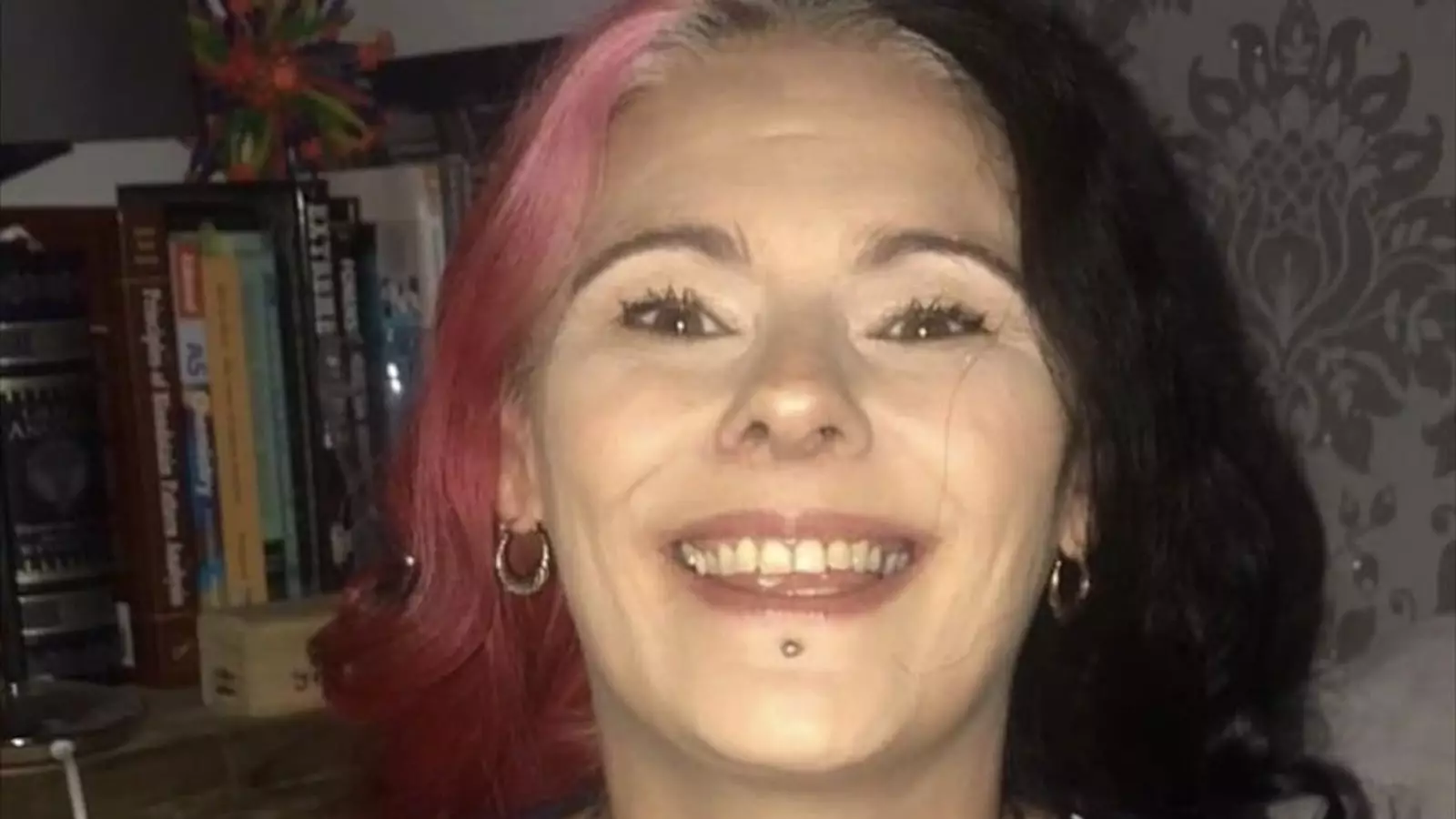In a poignant moment captured forever in a cherished photograph, Paula Parretti beams with joy, her vibrant half-pink hair a testament to her spirited personality. To those who knew her, she was not just Paula; she was the lively aunt who filled family gatherings with laughter, mischief, and an undeniable passion for nurturing her loved ones. Sam Cook, Paula’s sister, fondly remembers her as “the fun aunt” who always engaged with her children through laughter, noisy toys, and endless support. Unfortunately, this vibrant spirit was silenced in January 2022 when Paula tragically passed away. The image that haunts Sam, however, is not the radiant smile captured in the photograph but rather the stark reality of Paula’s last moments.
Sam’s heart-wrenching discovery of her sister’s lifeless body in her flat illustrates a deeper systemic issue at play within mental health services. Just weeks prior, Paula had been discharged from a hospital despite exhibiting clear signs of distress. Sam recalls feeling a deep frustration when healthcare professionals insisted she take Paula home, brushing aside her sister’s visible panic—”They dropped her bags at my feet and said, ‘You’ve got to take her home, we need the bed.'” Such dismissiveness underscores the urgent need for change in mental healthcare protocols, illuminating the struggles faced by those battling mental illness.
In those last, desperate moments, Paula expressed feelings of isolation, repeatedly telling Sam, “Nobody listens. I’m never going to get any help.” These statements resonate with countless others who grapple with similar sentiments in the mental health care landscape. It serves as a wake-up call for healthcare providers to prioritize empathy and understanding in their treatment plans and patient interactions.
An Inquest into Mental Health Tragedy
Now, as Sam steps forward to advocate for her sister, she is poised to be one of the first relatives to speak at a public inquiry examining the untimely deaths of mental health patients, a poignant initiative known as the Lampard Inquiry. Chaired by Baroness Lampard, the investigation will scrutinize a staggering number of fatalities—extending well beyond the previous estimate of 2,000 cases. The inquiry aims to uplift the voices of those who felt unheard during their most vulnerable times, and Sam is determined to ensure her sister’s story contributes to that narrative.
The inquiry also sheds light on a troubling pattern of negligence and mistreatment within mental health facilities. Sam reveals that Paula had previously endured physical abuse during a stay at the Linden Centre in Essex, where she suffered broken ribs and bruises inflicted by staff members. Though the NHS Trust recognized their missteps and acknowledged their fault, the compensation provided cannot bring back the life that was lost, highlighting a fundamental issue in the care of patients within the mental health system.
Sam’s journey does not stop with her sister’s memory; she has made it her mission to advocate for real reform in mental health services. The tragic losses she has endured, including a cousin and friend who also fought against their mental health battles, fueled her resolve. After sharing her experiences online, Sam has connected with individuals nationwide who echo her frustrations, pleading for acknowledgment and better treatment—a stark reminder that Paula’s story is not an isolated incident but part of a broader, disturbing trend in mental health care.
“We need to remind people that these were individuals,” Sam asserts. “Just because they had mental health issues doesn’t diminish their worth; they are beloved family members.” Her words resonate with a recognition of the humanity that often gets lost in cold statistics and bureaucratic processes. Behind each case are families, hopes, and dreams shattered by inadequate care and support.
The fight for mental health reform is, above all, a fight for dignity and compassion in the face of adversity. As Sam shares her sister’s story, she inspires others to challenge the stigmas surrounding mental illness and to push for a healthcare system that truly listens to its patients. By drawing attention to the systemic failures that led to Paula’s death, her voice becomes part of a larger chorus demanding change, compassion, and respect in mental health care.
If you or someone you know is struggling, it’s essential to seek help. Resources like Samaritans are available to provide support for those in distress. The journey towards reform may be daunting, but through voices like Sam’s, the tide may yet turn toward a more humane and responsive mental health system.


Leave a Reply